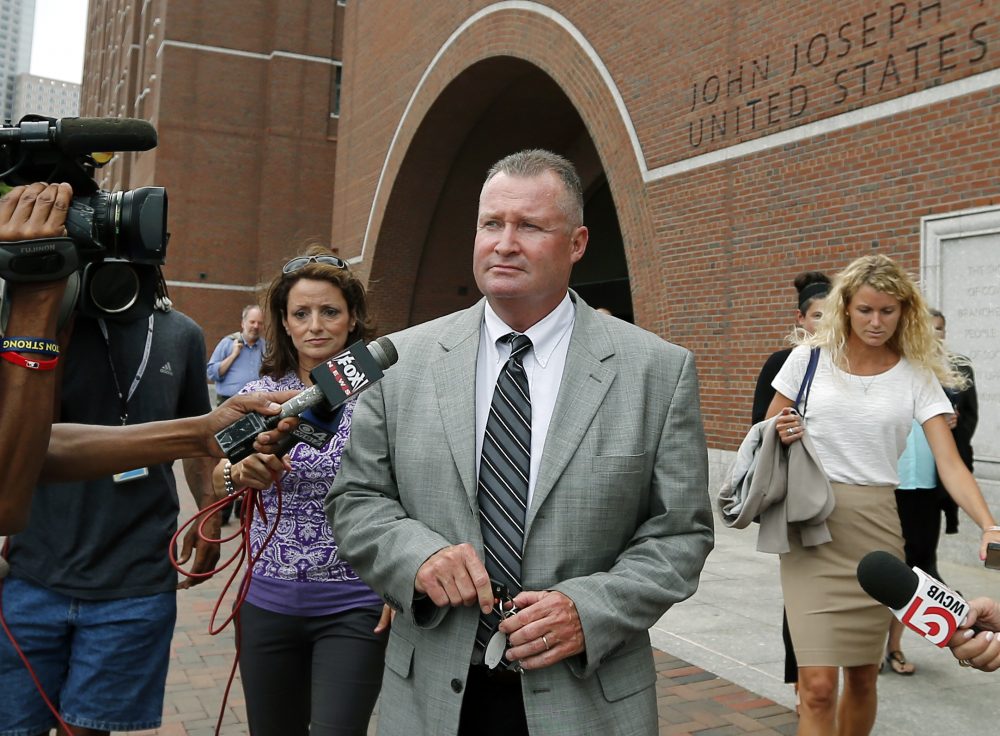Advertisement
New Questions About Public Corruption As Probation Convictions Overturned

Three former state officials have been cleared of any criminal wrongdoing in their role of a patronage scandal at the probation department.
An appeals court has thrown out the convictions of former probation Commissioner John O'Brien and his top deputies Elizabeth Tavares and William Burke. They used a rigged hiring system in order to give jobs to politically connected candidates.
We speak with two former prosecutors to get a better sense of what this ruling means for political corruption cases in Massachusetts.
Guests
Brad Bailey, criminal defense attorney, former assistant district attorney for Middlesex County and former assistant U.S. attorney in Boston. He tweets @Brad4Justice.
Scott Harshbarger, senior counsel in Casner & Edwards’ Litigation and Nonprofit departments and former Massachusetts attorney general.
Interview Highlights
Reaction to the ruling
Brad Bailey: “I am delighted for my client Elizabeth Tavares who spent 30 years dedicating herself as a professional in the corrections field and probation, and the fact that they determined that she did not engage in any wrongdoing or criminal conduct is justice delayed but certainly justice well deserved for her.”
Scott Harshbarger: "This did not vindicate, in any way, the individuals involved or the system that was involved here, a very clear pay to play system that ran for years. Whether it was widespread in the state or not, it was clearly a dominate practice in the probation department, of which, the leaders were fully aware. The fact is the system was rigged, recommendations were changed, that they were changed in order to give a favoritism to people recommended by legislators and others.”
Federal investigation of public corruption
Harshbarger: “The United States attorney has, in many cases, taken over the role as the prosecutor of public corruption in Massachusetts. For a long time in Massachusetts the weakest felonies were public corruption and white collar crime, that wasn’t an accident. As a prosecutor if you took on these cases you often had scars from it. And you were damned if you do, damned if you didn’t because you didn’t have the tools and people expected you, rightfully, to take these cases on.”
Bailey: “I think it is not an issue of criminality. I feel that this is an issue of ethics to the extent that one feels things are done unfairly or not on a basis of merit.”
Lessons learned
Harshbarger: “The leaders in the system ought not to take a victory lap here. The Legislature ought not to take a victory lap because we cannot go backwards in this state.”
Bailey: “Vindication is appropriate because these people were charged with crimes and they were convicted of crimes, very serious crimes. There isn’t a federal crime that is applicable and there isn’t a state crime that is applicable.”
This segment aired on December 20, 2016.

